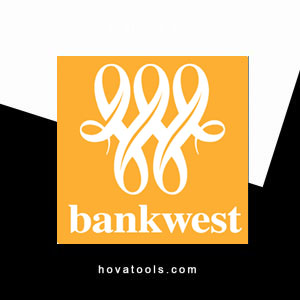Bank Login Hack: How to Keep Your Accounts Secure
As more and more of our daily activities shift online, the risk of cyberattacks has increased exponentially. Hackers are constantly devising new tactics to gain access to sensitive information, and one of the most common methods is through bank login hacks. A bank login hack is when a hacker gains access to your online banking account and steals your personal and financial information. In this article, we’ll discuss how bank login hacks happen, the consequences of such hacks, and most importantly, what you can do to prevent them from happening to you.

How Bank Login Hacks Happen
There are several ways that a hacker can gain access to your bank login credentials. One common method is through phishing scams. Phishing scams involve sending fraudulent emails or text messages that appear to be from your bank, asking you to click on a link and enter your login credentials. Once you enter your information, the hacker gains access to your account.
Another method that hackers use is keylogging. Keylogging is when a hacker installs software on your computer that records every keystroke you make. This includes your bank login credentials. With this information, the hacker can gain access to your online banking account and steal your money.
The Consequences of Bank Login Hacks
The consequences of a bank login hack can be severe. Not only can you lose all of your money, but the hacker can also steal your identity and use your personal information to commit fraud. In addition, a bank login hack can damage your credit score, making it difficult for you to obtain loans or credit cards in the future. It can take months, or even years, to recover from a bank login hack.

How to Prevent Bank Login Hacks
Fortunately, there are several steps you can take to prevent bank login hacks from happening to you. Here are some tips to keep your accounts secure:
- Use strong and unique passwords: Avoid using common passwords, such as “123456” or “password.” Instead, use a combination of letters, numbers, and symbols. Additionally, use a different password for each online account you have.
- Enable two-factor authentication: Two-factor authentication adds an extra layer of security to your online accounts. It requires you to enter a code, sent to your phone or email, in addition to your password.
- Be wary of phishing scams: If you receive an email or text message from your bank, don’t click on any links. Instead, type your bank’s URL directly into your browser and log in from there.
- Keep your computer and software up-to-date: Make sure that your computer’s operating system and software are updated regularly. This ensures that any vulnerabilities are patched.
- Use a VPN: A virtual private network (VPN) encrypts your internet connection, making it more difficult for hackers to intercept your data.
Bank Login Account for sale
-
- Australia Bank Login
Bankwest Australia Bank Login
- Price range: $180.00 through $600.00
- Select options This product has multiple variants. The options may be chosen on the product page
-
- Canadian Bank Login
ING Direct Bank Login – Canada
- Price range: $450.00 through $1,500.00
- Select options This product has multiple variants. The options may be chosen on the product page
-
- Australia Bank Login
National Australian Bank Logins
- Price range: $180.00 through $1,000.00
- Select options This product has multiple variants. The options may be chosen on the product page
These are the details we will give you for login and other purposes after you have bought bank account logins.
Username | Password | Security Questions | Answers | Email Access | Holder Name | Number Account | Bank Name | Phone Number | Address | Date | Mother Maiden’s Name | CVV2Username | Password | Security Questions | Answers | Email Access | Holder Name | Number Account | Bank Name | Phone Number | Address | Date | Mother Maiden’s Name | CVV2
Conclusion
Bank login hacks are a serious threat to your financial security. However, by following the tips outlined in this article, you can reduce your risk of falling victim to such attacks. Use strong and unique passwords, enable two-factor authentication, be wary of phishing scams, keep your computer and software up-to-date, and use a VPN. With these measures in place, you can rest easy knowing that your accounts are secure.
FAQs
- What should I do if I suspect my bank login has been hacked? If you suspect that your bank login has been hacked, contact your bank immediately. They can help you secure your accounts and prevent any further damage.
- Can a bank login hack be prevented? Yes, bank login hacks can be prevented by taking appropriate measures such as using strong and unique passwords, enabling two-factor authentication, being wary of phishing scams, keeping your computer and software up-to-date, and using a VPN
- How do I create a strong and unique password? A strong and unique password should be at least eight characters long and include a combination of letters, numbers, and symbols. Avoid using common words or phrases, and don’t reuse the same password for multiple accounts.
- What should I do if I receive a suspicious email or text message from my bank? If you receive a suspicious email or text message from your bank, don’t click on any links or download any attachments. Instead, contact your bank directly to verify the legitimacy of the message.
- Is it safe to use public Wi-Fi for online banking? Using public Wi-Fi for online banking can be risky, as hackers can intercept your data. If you must use public Wi-Fi, use a VPN to encrypt your connection and avoid accessing sensitive information, such as your bank account, while connected to the network.
Remember, taking a few simple steps to protect your bank login credentials can save you a lot of trouble in the long run. Stay vigilant, use strong passwords, enable two-factor authentication, and keep your software up-to-date to keep your accounts safe and secure. By doing so, you can enjoy the convenience of online banking without worrying about the risk of cyberattacks.
Click Buy Paypal Transfer

- Can I trust third-party mobile banking apps? It’s important to research and carefully review any third-party mobile banking app before using it. Look for reviews from other users, check the app’s permissions, and make sure it’s from a reputable developer. Be cautious of apps that ask for sensitive information, such as your bank login credentials.
- What should I do if I suspect my bank login credentials have been compromised? If you suspect that your bank login credentials have been compromised, contact your bank immediately. They can help you change your password and take steps to secure your account. It’s also a good idea to monitor your account activity regularly for any suspicious transactions.
- How often should I change my bank login password? It’s a good practice to change your bank login password every few months, or immediately if you suspect that it has been compromised. Regularly changing your password can help protect your account from unauthorized access.
- Is it safe to store my bank login credentials on my device? Storing your bank login credentials on your device can be convenient, but it also poses a security risk if your device is lost or stolen. It’s generally safer to not store sensitive information on your device and instead use a password manager or other secure means of accessing your accounts.
- What other security measures can I take to protect my online banking accounts? In addition to strong passwords and two-factor authentication, consider using biometric authentication such as fingerprint or facial recognition. Regularly review your account activity and report any suspicious transactions to your bank immediately. Keep your devices and software up-to-date with the latest security patches and avoid accessing your accounts on public computers or networks.
In conclusion, while online banking offers convenience and accessibility, it also comes with its own set of risks. Protecting your bank login credentials is crucial to safeguarding your financial information from cybercriminals.
By following these simple tips, you can significantly reduce the risk of unauthorized access to your online banking accounts. Always use strong and unique passwords, enable two-factor authentication, and keep your devices and software up-to-date. Be cautious of suspicious emails or messages, and only use trusted third-party mobile banking apps.
Remember to monitor your account activity regularly and contact your bank immediately if you suspect any unauthorized access or suspicious transactions. With these precautions in place, you can enjoy the benefits of online banking with peace of mind.
Don’t Know How to Use Bank Logins? Buy Instant Money Transfer Services

Contact
We are always available to take your orders 24/7. CONTACT US






